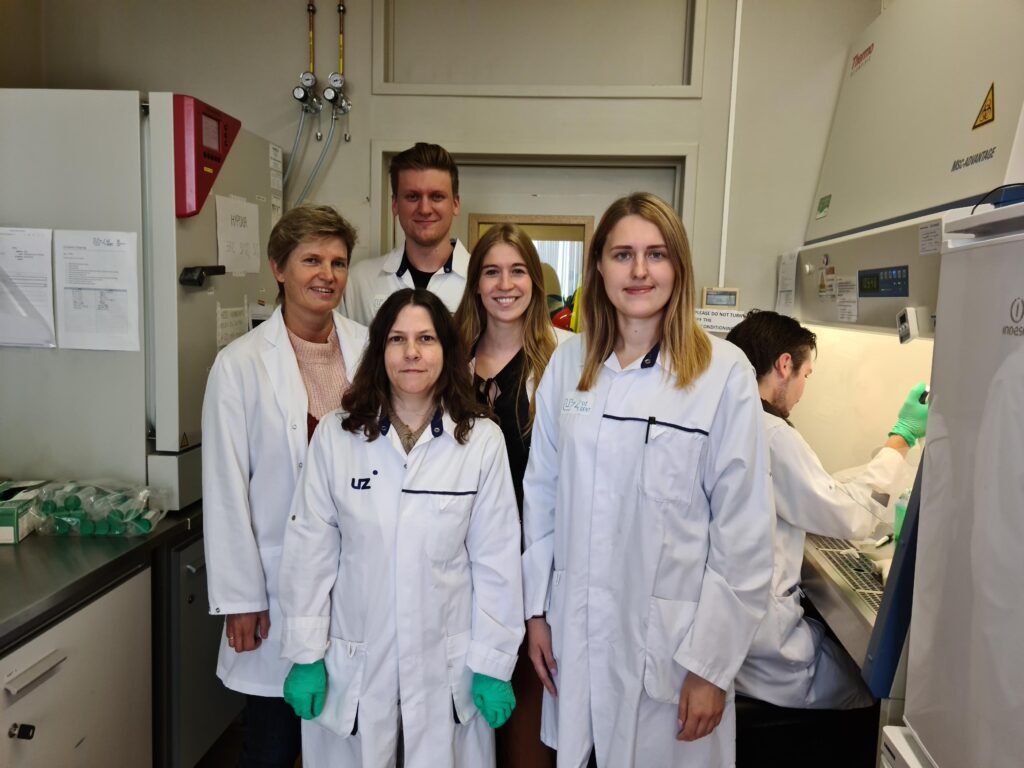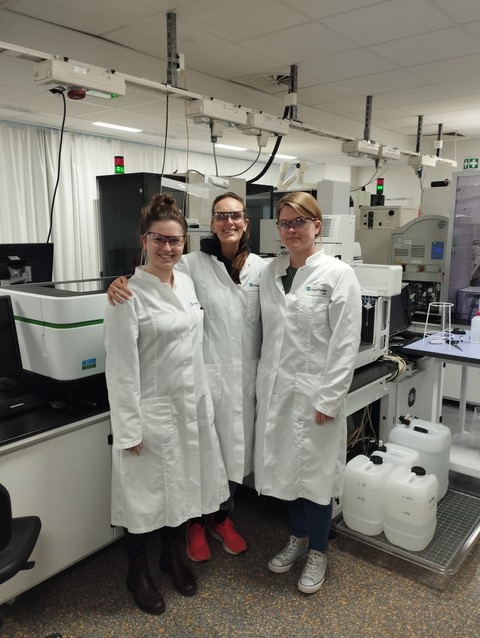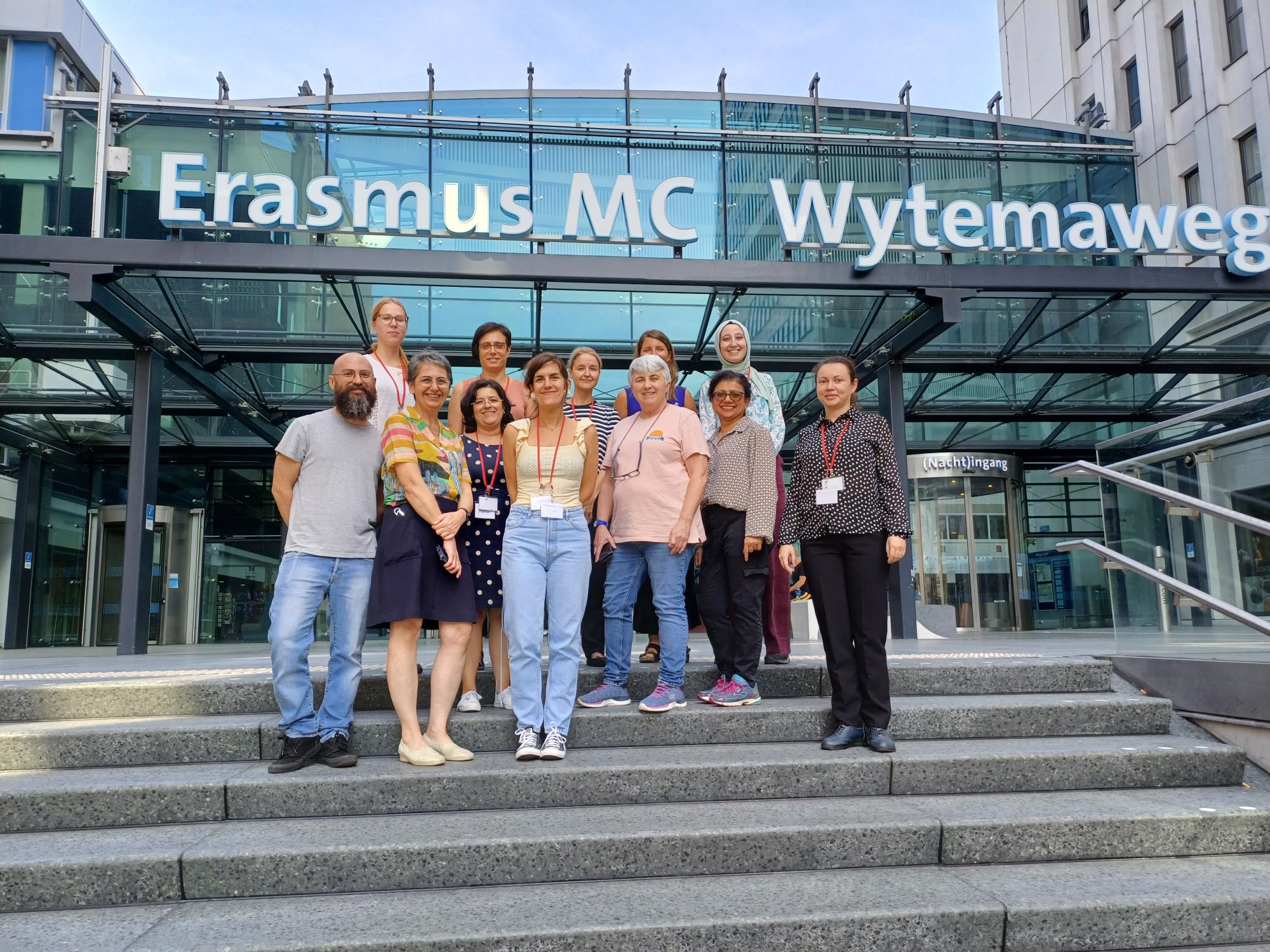First year CorEuStem short term scientific mission allowed hands-on training on hPSC culture, primary cells transduction towards pluripotency and small molecule screening using hPSCs.
Karina Goluba, research assistant from University of Latvia, Riga (Latvia) was introduced to the Professor Jolanda van Hengel laboratory, in Faculty of Medicine and Health Sciences, Ghent University (Belgium), where she learned how reprogram somatic cells into iPSCs, basic procedures regarding hPSCs maintenance and differentiation.
“Overall, during this mission I learned all the planned methods and fully implemented the plan set at the beginning. I have gained very good experience in working with pluripotent stem cells…and now I can feel confident working with them soon in my PhD work and in other projects. This STMS also helped establish scientific connection between our and host institutions.”

Over the course of 2 weeks in the Dr. Ole Pless lab at Fraunhofer ITMP, Hamburg (Germany) Jacqueline Severino from Centre for Genomic Regulation, Barcelona (Spain) was able to shadow two experienced researchers in two different projects:
1) CureMILS (European Joint Programme on Rare Diseases) aims at identifying small molecule compounds that restore the mitochondrial membrane potential in mutant human neural progenitor cells (hNPCs) derived from patients suffering from a rare disease.
2) An automated Embryonic Stem Cell Test (EST) to assess toxic effects and developmental impact of a selected set of drugs on mouse embryonic stem cells (mESCs) and mouse fibroblasts.
“The excellent infrastructure and expertise on early stage drug discovery at the Fraunhofer allowed Jacqueline to get familiar with many technologies that are not available in my home institution. Moreover, the vibrant atmosphere at Fraunhofer ITMP facilitated a constant exchange of expertise between the scientists directly and indirectly involved in the STSM. I was pleasantly exposed to other lines of research carried out at the institute and I am looking forward to bringing back to the CRG to strengthen our relation with Fraunhofer ITMP aiming for joint future projects.”





